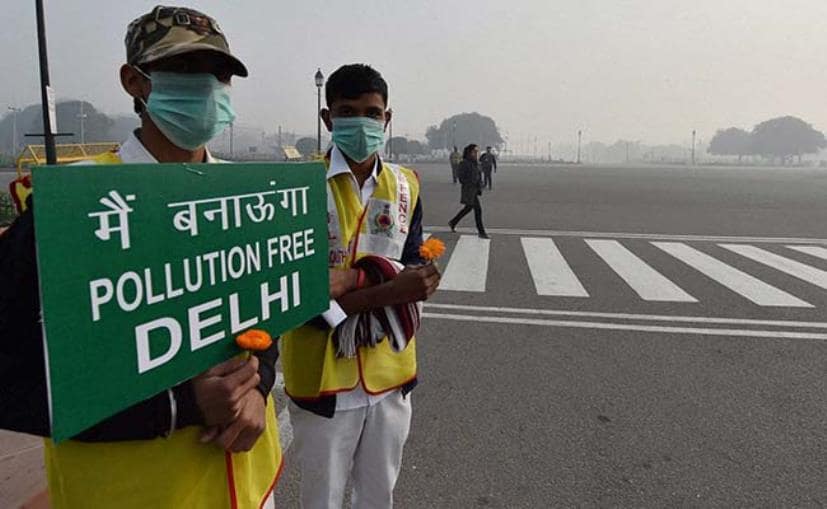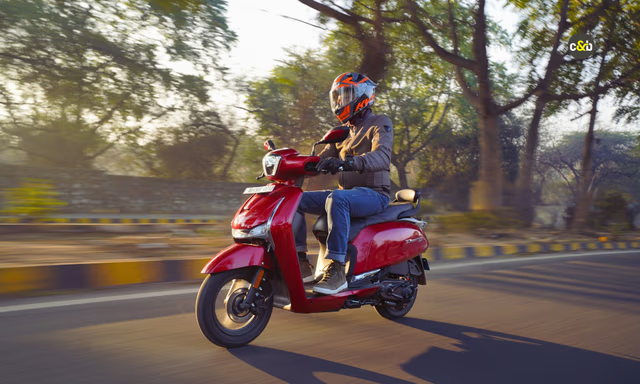Effect of Odd-Even Scheme on Pollution Still Uncertain

Director General of SIAM, Vishnu Mathur, said," As far as plus points of odd-even scheme go, there is less congestion on the roads but has it lowered the air pollution, we don't know. One positive thing for us is that buses will sell more if it continues as public transport will have to be strengthened."
Also Read: Odd Even Formula: The Exemptions
To try and reduce pollution by limiting the number of cars plying on the national capital's roads, the government has put into play an odd-even formula which has been active since 1 January, 2016. Cars with registration numbers ending in odd digits are only allowed to ply on odd dates and even numbered ones on even days. The formula is being implemented only between 8am and 8pm and does not apply to single female drivers, public transport, emergency transport, a list of VIP officials, and hybrid vehicles. All vehicles are exempt from the rule on Sundays.
Speaking with regards to the proposed jump from Euro IV to Euro VI norms, the Deputy Director General of SIAM, Sugato Sen, agreed with what technology providers have been saying- " For developing of vehicles you have to make the Euro V technology first establish over a period of time and then move to Euro VI. That's how it has been done everywhere. In Europe they did not skip directly to Euro VI. They have gone from Euro V to Euro VI. We will be going for the first time if at all we go."
When asked to comment on if the changing of norms would result in the cost of vehicles to go up, Sen said that he wasn't sure because the required investment figures to get Euro V and Euro VI were themselves unknown.
Also Read: Odd-Even Scheme in Delhi to Run Its Course Till January 15 as Planned
"When we moved from carburettor engines to MPFI engines did we see a great rise in product prices or difference in price? I don't think so. Similarly from Euro I, II, III, we have come to Euro IV how much price hike have we seen?" Sen continued. In the wake of alarming pollution levels in major Indian cities, particularly New Delhi, the government has decided to bring forwards the date of implementing the far stricter Bharat Stage (BS) VI emission norms by April 1, 2020. This means that the Indian automotive industry will be forced to completely bypass BS-V altogether. Currently, BS-IV is being followed in certain parts of India with the entire country expected to comply with BS-IV norms by April 1, 2017.
Latest News
 Girish Karkera | Feb 27, 2026BMW Chairman Oliver Zipse Named 2026 World Car Person of the YearThe award makes him part of a select industry leaders to make the cut.1 min read
Girish Karkera | Feb 27, 2026BMW Chairman Oliver Zipse Named 2026 World Car Person of the YearThe award makes him part of a select industry leaders to make the cut.1 min read car&bike Team | Feb 26, 2026Triumph 350 cc Range India Launch By April 2026Bajaj had confirmed the development of the 350 cc Triumph models back in November, following the GST rate reforms.1 min read
car&bike Team | Feb 26, 2026Triumph 350 cc Range India Launch By April 2026Bajaj had confirmed the development of the 350 cc Triumph models back in November, following the GST rate reforms.1 min read Preetam Bora | Feb 26, 2026Second-Generation Ducati DesertX Unveiled: All You Need To KnowThe new DesertX V2 comes five years after the first-generation model and will be launched in India by the end of this year. It gets an all-new 890 cc, V2 engine, new frame, updated suspension and electronics package.1 min read
Preetam Bora | Feb 26, 2026Second-Generation Ducati DesertX Unveiled: All You Need To KnowThe new DesertX V2 comes five years after the first-generation model and will be launched in India by the end of this year. It gets an all-new 890 cc, V2 engine, new frame, updated suspension and electronics package.1 min read car&bike Team | Feb 26, 2026Mahindra XEV 9S Gains A New Custom Drive ModeThis new mode is limited to the Pack Three variants equipped with adaptive dampers.1 min read
car&bike Team | Feb 26, 2026Mahindra XEV 9S Gains A New Custom Drive ModeThis new mode is limited to the Pack Three variants equipped with adaptive dampers.1 min read car&bike Team | Feb 26, 2026JSW Motors Teases Its First SUV For India; To Be Based On Jetour T2The JSW Group is looking to enter the Indian automobile sector under its own name while also operating the JSW MG Motor India joint venture.2 mins read
car&bike Team | Feb 26, 2026JSW Motors Teases Its First SUV For India; To Be Based On Jetour T2The JSW Group is looking to enter the Indian automobile sector under its own name while also operating the JSW MG Motor India joint venture.2 mins read car&bike Team | Feb 26, 2026Next Mahindra Electric SUV Launch Confirmed For 2027Mahindra has confirmed that the BO7, production version of the BE.07 concept will arrive in CY27.2 mins read
car&bike Team | Feb 26, 2026Next Mahindra Electric SUV Launch Confirmed For 2027Mahindra has confirmed that the BO7, production version of the BE.07 concept will arrive in CY27.2 mins read
 Preetam Bora | Feb 24, 2026Hero Destini 110 Review: Simplicity, RefinedThe Hero Destini 110 is a no-nonsense commuter that is simple, comfortable and above all, fuel efficient. In 2026, when buyers are spoilt for choice, is it good enough to consider?1 min read
Preetam Bora | Feb 24, 2026Hero Destini 110 Review: Simplicity, RefinedThe Hero Destini 110 is a no-nonsense commuter that is simple, comfortable and above all, fuel efficient. In 2026, when buyers are spoilt for choice, is it good enough to consider?1 min read Preetam Bora | Feb 23, 2026TVS Apache RTX Road Test Review: Redefining the Entry-Level ADVAfter spending some time with the TVS Apache RTX in traffic, the daily commute, as well as on open highways, one thing becomes clear: the RTX is trying to redefine the entry-level ADV segment. But is it without fault?1 min read
Preetam Bora | Feb 23, 2026TVS Apache RTX Road Test Review: Redefining the Entry-Level ADVAfter spending some time with the TVS Apache RTX in traffic, the daily commute, as well as on open highways, one thing becomes clear: the RTX is trying to redefine the entry-level ADV segment. But is it without fault?1 min read Girish Karkera | Feb 20, 2026Road Test: 2025 VinFast VF7 AWD Sky InfinityFlagship all-electric SUV from the Vietnamese car maker gets most of the basics right.1 min read
Girish Karkera | Feb 20, 2026Road Test: 2025 VinFast VF7 AWD Sky InfinityFlagship all-electric SUV from the Vietnamese car maker gets most of the basics right.1 min read Jaiveer Mehra | Feb 18, 2026New BMW X3 30 Vs Mercedes-Benz GLC 300: Midsize Luxury SUV FaceoffWith the new X3 30, BMW has a direct competitor to the petrol GLC 300, but which is the luxury SUV for you?1 min read
Jaiveer Mehra | Feb 18, 2026New BMW X3 30 Vs Mercedes-Benz GLC 300: Midsize Luxury SUV FaceoffWith the new X3 30, BMW has a direct competitor to the petrol GLC 300, but which is the luxury SUV for you?1 min read Jafar Rizvi | Feb 15, 2026Maruti Suzuki Victoris: Long-Term Review - Report 1The Victoris is Maruti’s latest offering for the Indian market, and after spending some time with it, here are a few early impressions.1 min read
Jafar Rizvi | Feb 15, 2026Maruti Suzuki Victoris: Long-Term Review - Report 1The Victoris is Maruti’s latest offering for the Indian market, and after spending some time with it, here are a few early impressions.1 min read
























































































































